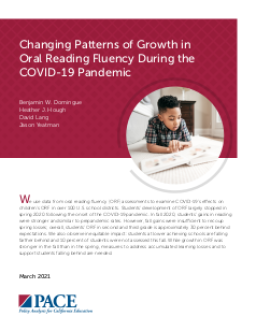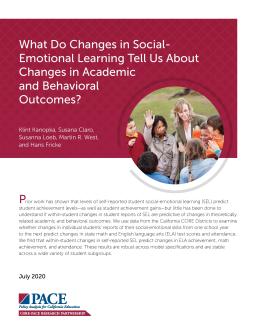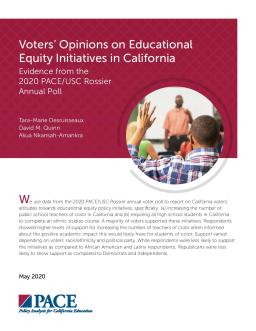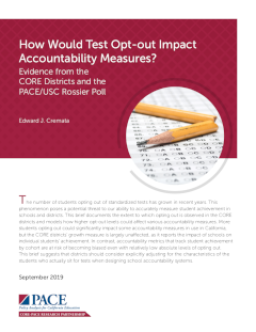Summary
Summary
The COVID-19 pandemic had a significant negative effect on the oral reading fluency (ORF) of US students in grades 2-3 in over 100 school districts, with students falling 30% behind expectations. While there was some recovery in the fall, it was insufficient to make up for the spring losses. The impact is particularly inequitable, with lower achieving schools being hit harder, and 10% of students not being assessed. Addressing accumulated learning losses and supporting struggling students is necessary.
Summary
Summary
Summary
California voters generally support policies to increase teacher diversity and require high school ethnic studies courses, according to a 2020 PACE/USC Rossier poll. Support for increasing teacher diversity was higher when respondents were informed of its positive impact for students of color. Support varied by race/ethnicity and political party, with white and Republican respondents showing less support than African American, Latinx, Democrat, and Independent respondents.
Summary
Summary
Summary
The increase in students opting out of standardized tests is a threat to accurately measuring student achievement. This brief examines the effects of opting out in the CORE districts and models how it could affect accountability measures. More opt-outs could significantly impact some metrics, but the growth measure is largely unaffected. Metrics tracking achievement by cohort are at risk of bias, even with low levels of opting out. Adjusting for characteristics of students who take the tests could be a solution.
Summary
This report examines the stability of school effects on social-emotional learning (SEL) over two years in California's CORE districts. The correlations among school effects in the same grades across different years are positive but lower than those for math and ELA. While these effects measure real contributions to SEL, their low stability draws into question whether including them in school performance frameworks and systems would be beneficial.








